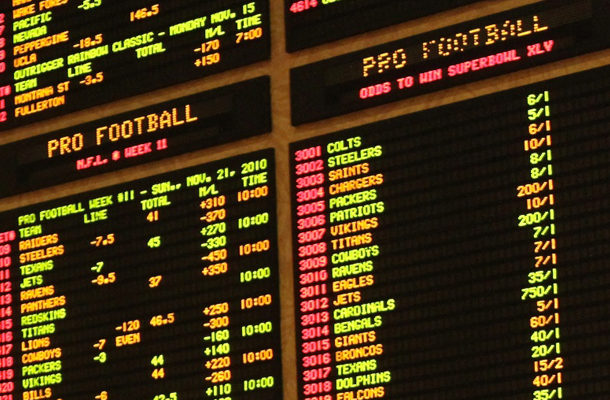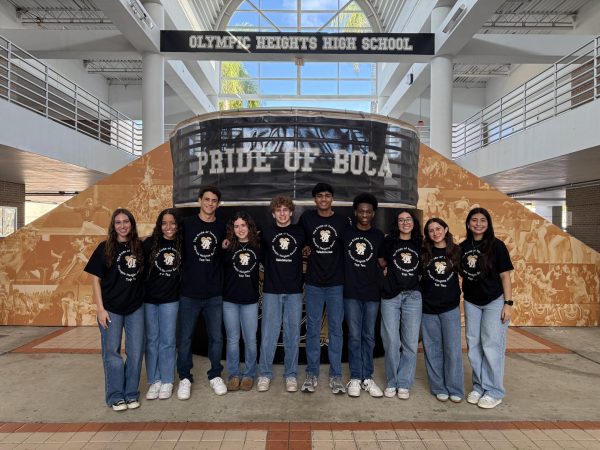NEWS ANALYSIS: Supreme Court Ruling on Legalized Sports Betting Poses Complications
After years of legal deliberation, the Supreme Court has decided to allow states to legalize sports betting. This ruling opens a previously illegal sports gambling market, worth anywhere from $50 billion to $400 billion, for athletic leagues to capitalize on. The impact of this decision may not be felt immediately, but its effects will undoubtedly change how sports leagues, and the government’s management of them, operate.
This legal conflict originated when Congress enacted the Professional and Amateur Sports Protection Act of 1992 (PAPSA). The bill was sponsored by politician and NBA Hall of Famer Bill Bradley to safeguard the integrity of sports. He was specifically referring to rigged sports matches, wherein a player or referee would take an illegal payment to “throw” the game – to play or officiate poorly purposefully.
Most believed instances of rigged games are only supported by the most daring conspiracy theorists. There are those that believe that the NBA rigged the NBA Draft Lottery to allow the Knicks to draft Patrick Ewing (who became an NBA Hall of Famer); that Manny Paquiao’s agent paid the boxing matches’ judges to give his opponent, Timothy Bradley, the victory (visual evidence shows Pacquiao destroyed Bradley); and that the NBA told refs to help the Miami Heat win the 2006 NBA Finals by awarding them more free-throws (Miami received 49 free throws to Dallas’ 25 in Game 5). The most famous of these cases, and the most legitimate, in America is the Black Sox Scandal-where gamblers bribed members of the Chicago White Sox to “throw” the 1919 World series.
Regardless of these dark spots, the Supreme Court, in a 6-3 decision, overturned this bill as it was declared unconstitutional: “It is as if federal officers were installed in state legislative chambers and were armed with the authority to stop legislators from voting on any offending proposals,” Justice Samuel A. Alito Jr. wrote. This explanation seems to allow states to have free reign in terms of sports gambling legislation, but Justice Alito Jr. qualified his previous statement with this important cavaet: “Congress can regulate sports gambling directly, but if it elects not to do so, each State is free to act on its own.”
While the court rejected the notion that the legalization of sports betting will impact sports leagues, one sporting organization will have to stay on its toes concerning unethical behavior – the NCAA. College sports are already marred with unethical behavior – in 2011 San Diego University’s men’s basketball team saw 10 indictments for a point shaving scheme, a scheme where a team purposefully wins or loses by more or less than a previously betted point margin.
Because college athletes don’t receive a steady salary for playing their sport, they may be more inclined to take money to skew games from legal betters. However, Sportradar, a company that monitors real-time betting and identifies potential spikes in irregular betting patterns, may be the answer. The CEO of Sportradar, Carsten Koerl, responded to the court case with this message in reference to his company: “It is critical to create a framework that enables U.S. sports fans to engage in the sports and competitions they follow and love, through a safe and secure wagering infrastructure that balances the priorities and needs of all stakeholders.”
So, with the flood gates seemingly open, anything can happen. Almost immediately, the states which brought this case to the Supreme Court – New Jersey, West Virginia, and Pennsylvania among others – will each have laws legalizing sports betting passed within the upcoming weeks. For other states, however, they will have to wait until 2020 to put this issue on their ballots. While this ruling seemingly gives states freedom concerning sports betting, this may not be the best course.
Congress has the right to intervene and regulate, or even outlaw, sports gambling as sanctioned by the Supreme Court. While they wouldn’t dare to outlaw it again, the nationwide regulation of sports betting should be encouraged. Because of the prevalence of major league sports teams -72 large American cities house at least one – a vast variation of state laws would cause chaos in the sporting world.
Congress, in cohesion with the states, should work to pass laws that are effective and reasonable for the safe continuation of sports betting. Having incohesive betting laws can cause confusion amongst betters since a game in one state may have different betting laws and taxes than another. Would living in Denver but betting on a game taking place in Kansas City subject the better to the betting laws of Colorado or Kanas? These rules will have to be determined by state governors, congressmen, and the commissioners of the major sports leagues.
The legalization of sports betting also opens up the ability for taxation. States and leagues will both want a piece of the profits received – the states as most monetary transactions are taxed and the leagues for giving betters the opportunity to bet on their sport. However, the taxation of betting must be properly implemented. If too low, states and leagues won’t be happy with the lack of revenue. If too high, betters could be discouraged from betting legally and return to illegal avenues to increase profit. This sentiment was echoed by NBA Senior Vice-President and Assistant General Counsel Dan Spillane, “I would want to be careful about limiting things in a way that is just going to sort of encourage people to keep using the illegal services.”
The immediate impact of this landmark court case is large and the residual impacts of this court case will be larger. There is no way to know the true scope of the impact at this point, but as time progresses more laws and regulations will hopefully be put in place to capitalize on this new entertainment and monetary avenue.









